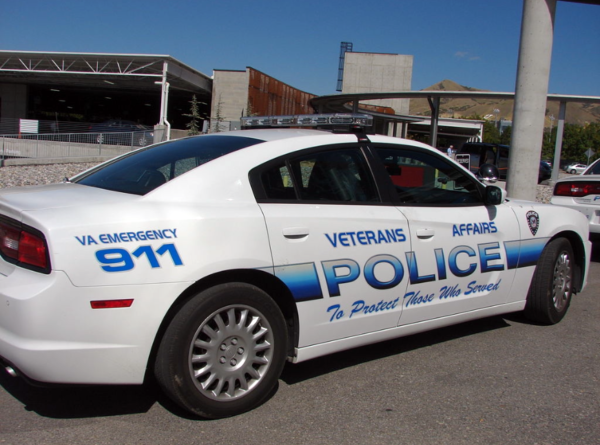
(Photo: An Errant Knight)
The U.S. Department of Veterans Affairs has announced a significant step toward improving transparency and accountability in its police force.
Starting June 20, all VA police officers will be required to wear body cameras and use dashboard cameras on their vehicles. By the end of 2023, approximately 4,670 officers serving at department medical centers, cemeteries, and offices will be equipped with the cameras. This initiative aims to foster trust, promote de-escalation, and ensure the safety of Veterans, their families, caregivers, survivors, visitors, and VA employees.
Promoting Transparency and Safety
The decision to implement body cameras follows calls from lawmakers and aligns with legislation passed by Congress last year, as well as federal law enforcement practices mandated by President Joe Biden. The cameras will automatically record video and audio whenever an officer draws a firearm or activates the emergency lights in a police vehicle. They will also be manually activated during investigations and enforcement encounters, including traffic stops and responding to calls for service.
The cameras will help document statements, behaviors, and evidence, serving as useful tools for police investigations, court proceedings, and promoting professional conduct among officers and the public.
Respecting Privacy and Confidentiality
While ensuring transparency and accountability, the VA is committed to protecting the privacy of those it serves and its employees. The footage from the cameras will only be used for authorized purposes, such as police investigations, court proceedings, and other limited purposes as permitted by federal law. The VA has emphasized that no video will be recorded in locations where a reasonable expectation of personal privacy exists, except in cases with a clear and compelling need for recording.
These safeguards aim to strike a balance between enhancing accountability and respecting the privacy rights of individuals.
Training and Implementation
The VA has taken proactive steps to ensure the successful implementation of this policy.
Both police officers and privacy officers are undergoing extensive training to familiarize themselves with the cameras’ usage, proper handling of recordings, and adherence to the Health Insurance Portability and Accountability Act (HIPAA) rules. This training emphasizes the importance of responsible and ethical use of the cameras while upholding the highest standards of privacy and confidentiality.
Impact on Veterans and Officers
VA Secretary Denis McDonough expressed his belief that the use of body cameras will foster trust, transparency, and de-escalation within the VA police force. This measure aims to enhance the safety of Veterans and their interactions with VA officers. Senior Security Officer Troy Brown of the Veterans Health Administration also affirmed that these cameras will not only improve accountability but also ensure the well-being of both officers and the community they serve.













